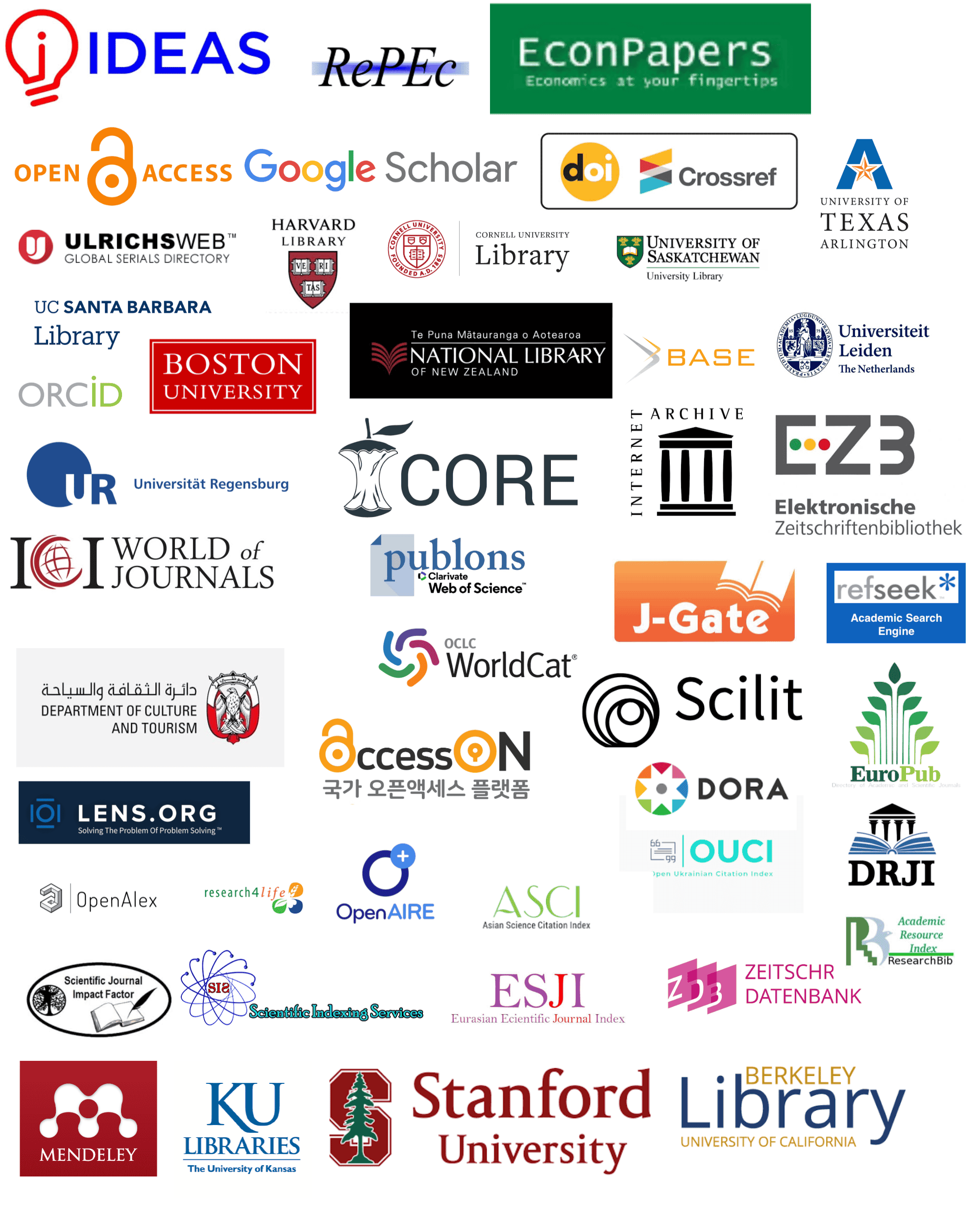Persistent budget deficits and sustainable external debt: Long-term impact on economic growth in Bangladesh
DOI:
https://doi.org/10.56879/ijbm.v4i2.160Keywords:
debt sustainability, fiscal policy, Bangladesh, budget deficit, economic growth, external debtAbstract
Debt sustainability is a critical concern in achieving long-term macroeconomic stability, particularly for developing economies like Bangladesh. This study examines the interrelationship between budget deficits, external debt, and economic growth, utilizing annual data from 1980 to 2021. Employing correlation analysis, multiple regression, and principal component analysis, the study identifies a negative association between budget deficits and external debt. Moreover, while external debt exerts a negative influence on economic growth when considered in isolation, its impact becomes positive when combined with stable and supportive policy variables. These findings underscore the significance of comprehensive fiscal management and macroeconomic stability in leveraging external borrowing for growth. The results offer important policy insights: external debt, when guided by prudent and forward-looking strategies, can catalyze development rather than be a constraint. The study emphasizes the need for institutional capacity-building and efficient public investment to ensure debt sustainability in the face of rising repayment obligations.
Downloads
Published
Issue
Section
License
Copyright (c) 2025 Md. Shoayeb Noman, Mahfuja Akter, Rakibul Hasan (Author)

This work is licensed under a Creative Commons Attribution 4.0 International License.


